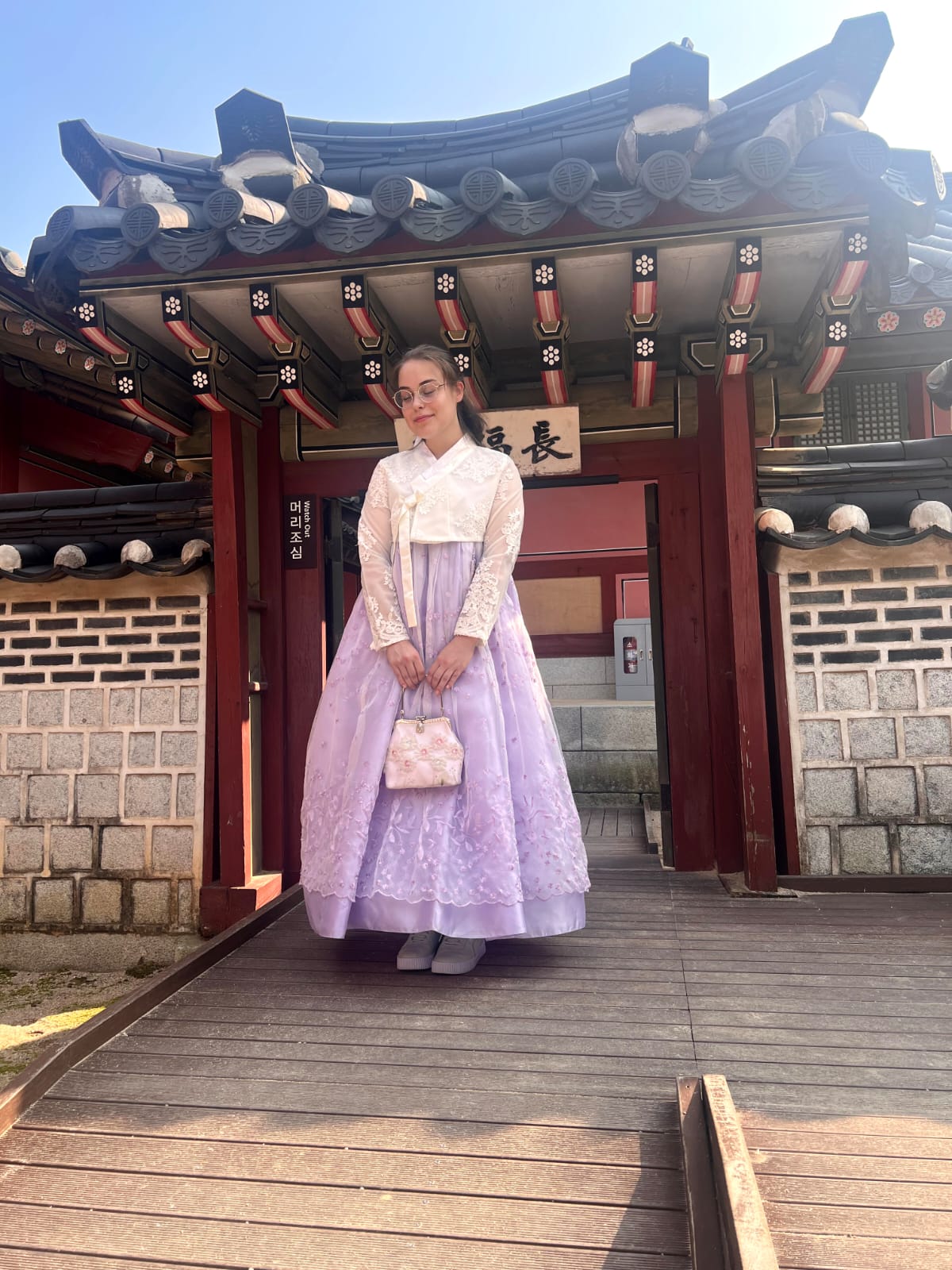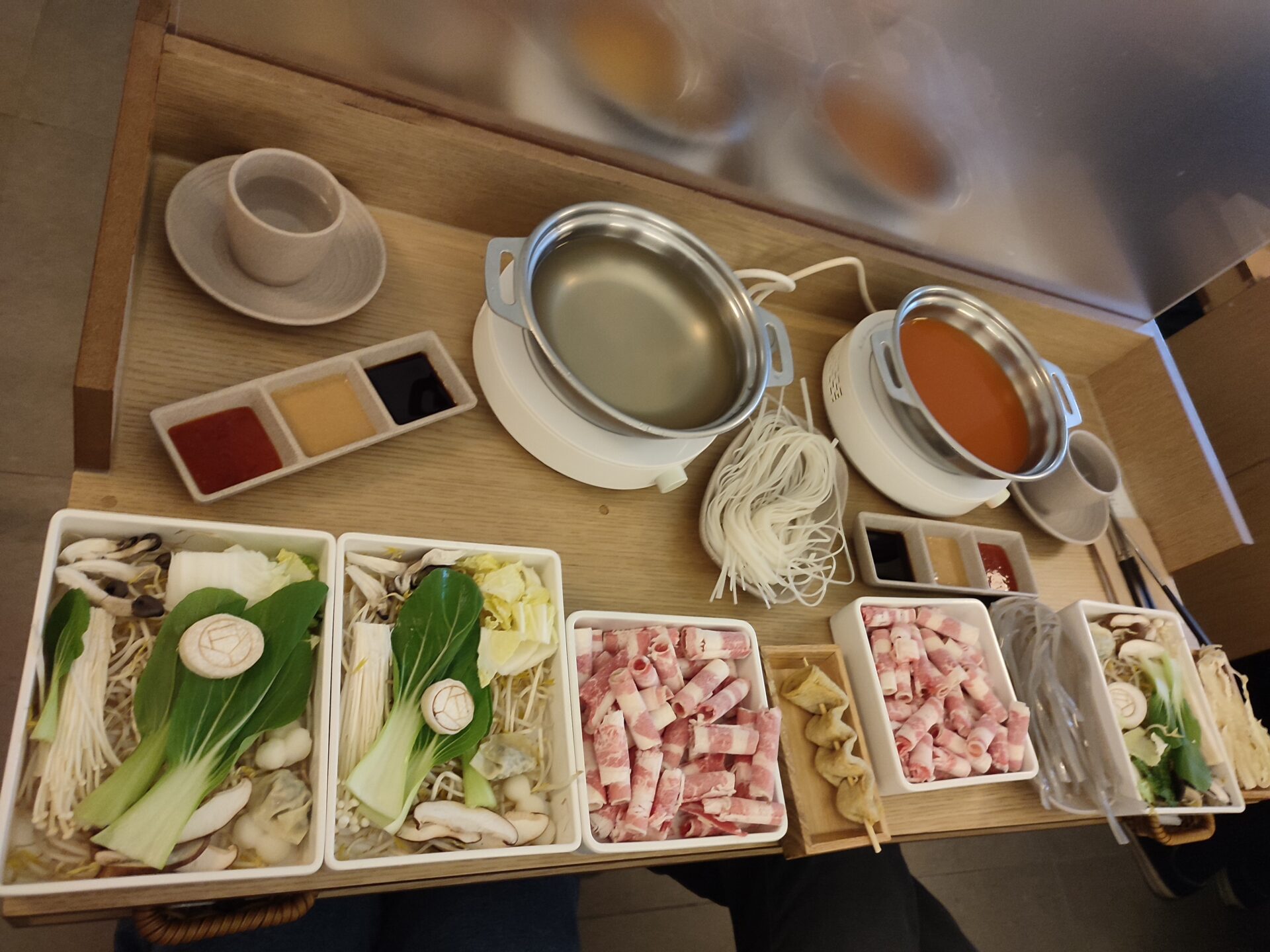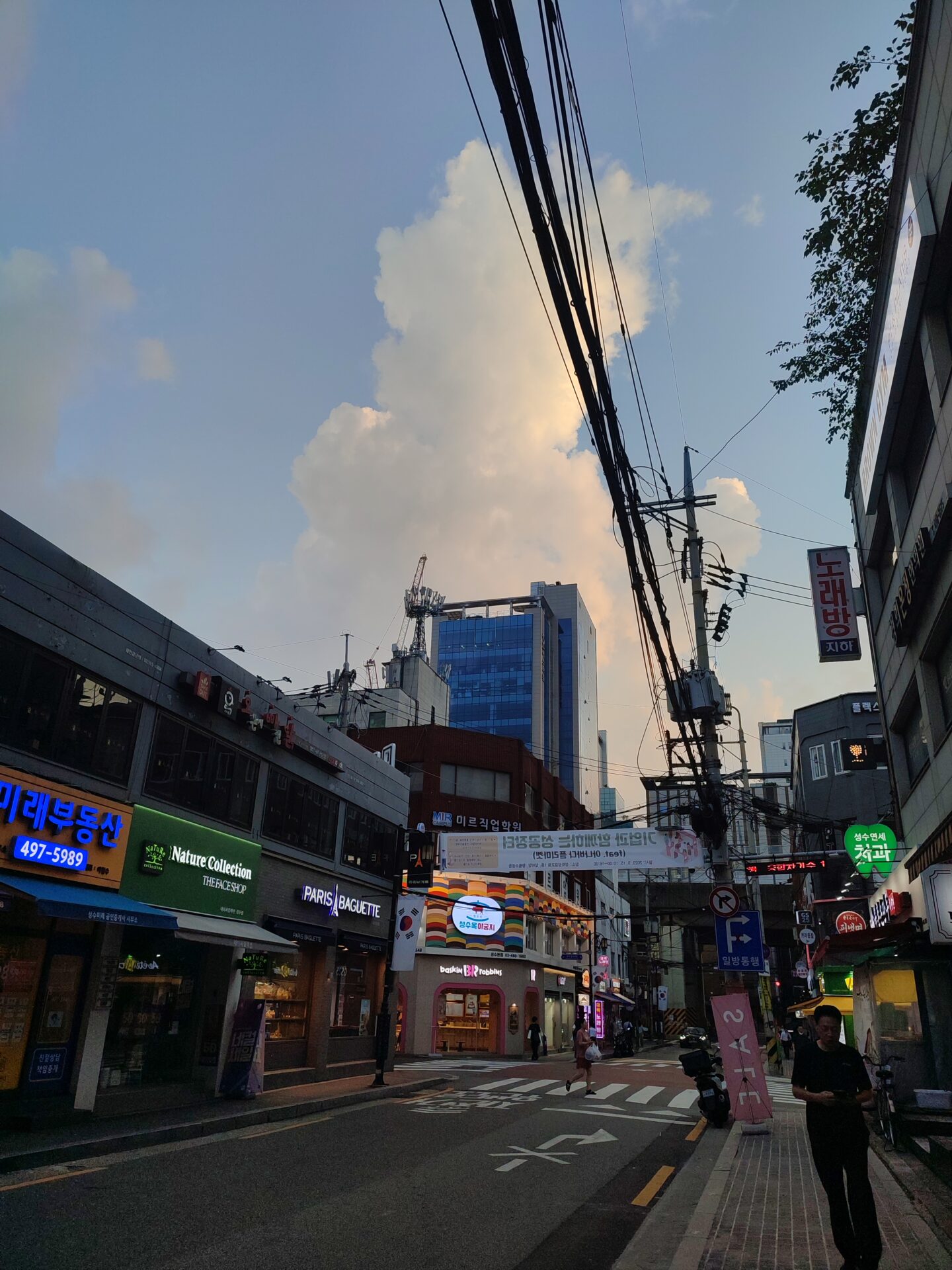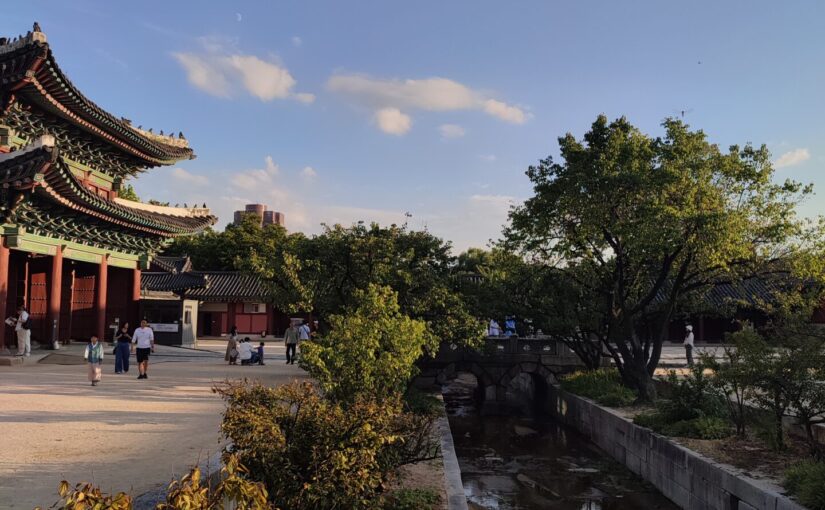Field of study in Wageningen: BSc Food Technology
Study period exchange: 31/08/2023 – 21/12/2023
Country (exchange): South Korea
City (exchange): Seoul
University (exchange): Seoul National University
Faculty (exchange): Department of Animal and Food Biotechnology
2. Motivation for exchange
Why did you choose to go on study exchange?
I wanted to see what studying in a different environment would look like. I really wanted to challenge myself and get myself out of the comfort zone. Furthermore, I always wanted to see Asia and experience real life there, not only vacation. I believe that was a great way to develop myself, gain valuable knowledge in my field of study, meet incredible people and experience life on the other side of the world.
What is the reason you chose for this country/university?
My initial reason for choosing SNU was the fact that it is the best university in South Korea and it ranks high in the world university rankings. Then, after looking into available courses and activities offered by university I was even more certain that this is the right choice for me. I knew that the studies would be challenging, since the work/ study culture in Asia is different from European one, but that made me want to chose SNU even more. Finally, Korea has beautiful nature, mountains and delicious food; all of these things are something I wanted to experience (especially food, as I am a BFT student).

3. Accessibility to reach destination
Do you have any tips to reach your exchange destination?
To go to South Korea, one needs to take a plane, and then to reach the campus, which is ~60km away from the airport, one can take a train and a bus/metro, or one can take a taxi, which is very easy and much cheaper than in Europe. Moreover, taxi drivers, if one gets them through official sites, are fair and will not scam you.
4. University and studying
Could you provide some general information about the followed courses?

What is it like to study there?
The courses are theoretical, unless it specifically states that it is a lab course. The competition is big as everyone is very hardworking, high-achievers, and disciplined. I did spend quite a bit of time studying, making sure that I get good grades; the examinations seemed to be not too hard, but they covered all the material and asked questions that would examine your understanding of the subject (how do the things work and how they affect each other) as well as the specific details mentioned in class.
I think work load wise it is easily doable, I took courses equivalent to 38ECTS, and it was manageable. I still was able to travel, hang out with friends and have fun overall.

What is the culture of the university?
All of my teachers were very nice and caring towards exchange students. It was always possible to ask the questions during the class, after the class, within and outside the class content. Local students might be a bit more shy, but if you make effort to communicate with them, you will manage to make friends.
What does the university offer the student additionally?
On campus there are many canteens, and one of them has lunch for 0.7 Eur (yes, 70 cents), for international students. There is a sport centre for additional price, there are various cafes, convenience stores, there are free shuttle busses to and from campus.
5. Housing-travelling-living
What are the possibilities for housing?
SNU has dormitories available (~150eur/month), however, due to a large number of students ,it can be hard to get it. There are other options, I lived in a goshiwon (private rooms with shared kitchen, ~400eur/month), and it was a great place. One can also rent out an apartment (but the price can be an issue, as usually the landlords require a large deposit (7000-10000 Eur minimum). And then there are shared houses, but that might compromise your privacy, as some of them have rooms with several beds, for several people.
What is the culture of the country like?
In South Korea there is a strong vertical Hierarchy, thus it is important to be respectful to elders. It is also important to not be a nuisance to others; don’t be loud, don’t do things that are looked down upon, follow the escalator rules, etc.
The food is amazing in Korea if a person has no dietary restrictions. A lot of vegetarian/vegan people struggled when it came to getting nutritional and good vegetarian/vegan dishes.

Could you give some information about public transport infrastructure?
Public transport is extremely convenient: there are buses and a metro. One needs to buy a T-money card (can be done at the vending machines in the airport, at convenience stores, or sometimes even comes with a temporary SIM card), and this card needs to be loaded with money (cash) – can be done at the loading machines in metro stations. By using Kakao maps or Naver maps apps one can easily get around Seoul – just pay attention to the directions, which are always indicated. One needs to check in and check out when getting on and off the bus/metro station. Also, pressing stop button for busses when wanting to get off is mandatory.
To go to university, one can take a shuttle bus, walk, metro and/or public bus.
Taxi is cheaper than in EU, the drivers are fair, there are apps to call a taxi: Kakao T. One can pay through the app, or directly to the driver with cash or card.
6. Expenses
Can you give an indication of your expenses for/during your exchange?
Ticket there: ~750eur
Visa if applicable: ~50eur
Vaccinations if applicable: –
Insurances (extra, if applicable): travel insurance (for 1 month) before getting Korean insurance ~120eur, then monthly National Korean Insurance (mandatory) – ~80 eur/month
Housing costs per month & type of housing/accommodation: goshiwon: ~450eur
Groceries: can be higher or the same as NL
Public transport: ~ 2 eur for the whole trip (cheaper than NL)
Restaurant/going out for dinner: ~10-15 eur for a lot of food (cheaper than NL)
Daytrips/sight-seeing: depends, but cheaper than NL as public transport is way cheaper

7. Free time
What are must-sees in the area?
Exploring Seoul and all the famous spots: Namsan tower, Hongdae, Myeong-dong, Gangnam, Itaewon, Lotte world, all the pop-up stores, Nami island, Jeju island, the hiking trails, Han river, all the beautiful cafes.
What does not appear in the travel guide, but is worth a visit?
Smaller cities like Pohang and Gyeongju-si, as well as smaller, less advertised islands.
Do you have general tips and tricks about leisure time?
Just go out and explore, there is always stuff to see.

7. Challenges & best moment abroad
What was a challenge you have experienced?
I did not speak Korean at all, so learning survival phrases is important, learning how to order in a café/restaurant also is helpful. I got around this by using google translator.
What was your best memory abroad?
Eating all the delicious food and seeing all the beautiful sighs.
8. Contact Details
Would you like to ask Juste more questions about her exchange?
Send her a mail: juste.griskonyte@wur.nl

